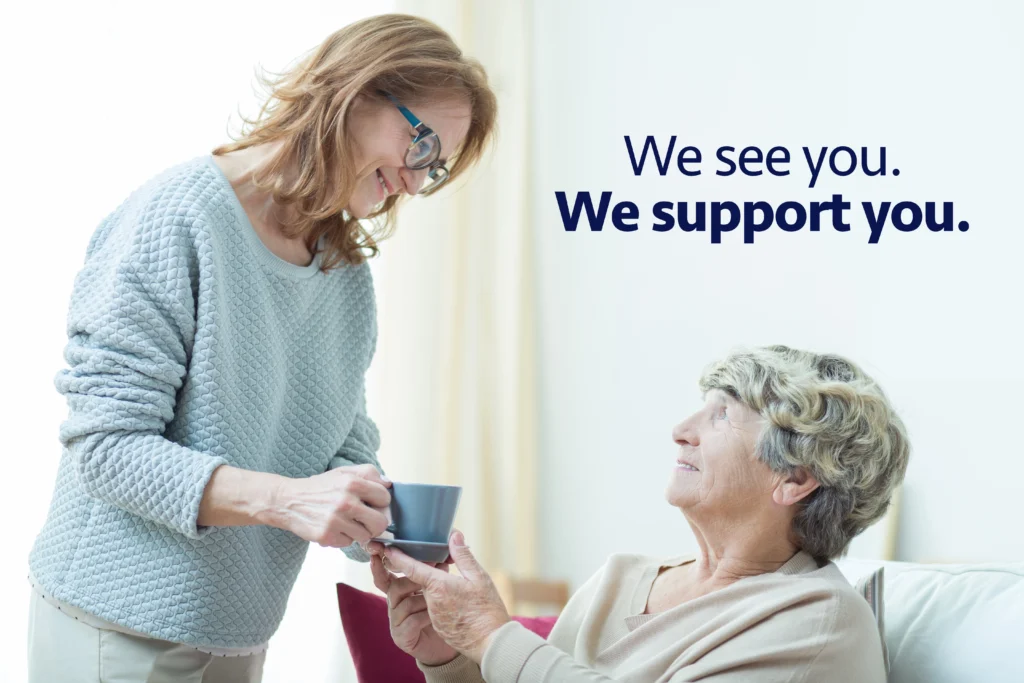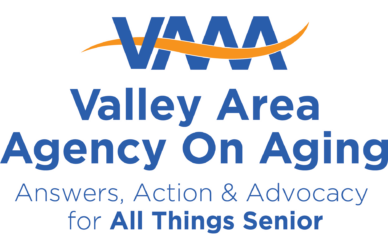VAAA provides support for caregivers, we know it’s not easy. Often, the personal well being of family caregivers suffers, people often experiencing physical, emotional and financial strife.
Identifying early indicators will enable you, your aging loved one, and the rest of your family, to come up with a plan to make sure everyone’s needs get met.
Below are independent resources to get you started, if you’re interested in working with skilled professionals in a caregiving workshop please learn more here.

Am I a caregiver?
Recognizing one’s role as a family caregiver seems like an obvious initial step in the caregiving journey. However, a surprising number of people skip this integral first phase, diving right into their elder care responsibilities.
You will learn to recognize when an aging loved one needs additional help, how to distinguish between the changes caused by “normal aging” and changes that could signify that something worse is wrong with an elder, and uncover valuable insights about the four main categories of family caregivers.
When an Elderly Loved One Needs Extra Help
Family members of aging adults typically travel one of two paths to becoming a caregiver: the sudden sprint, or the gradual march. The sudden sprint towards providing care for a loved one is often set off by an unexpected event-a stroke, a fall, complications surgery-which acts as a catalyst, escalating your family member’s care needs practically overnight.
The gradual march in the direction of caregiving is less abrupt. You can’t say exactly when it begins, but you’ve started noticing little changes in how your family member interacts with the world around them. Perhaps they’re getting lost while driving to the grocery store, or they are having trouble keeping track of their medications, or balancing their checkbook- tasks they’ve performed countless times over the years, without any problem.
Whether the change is sudden or gradual, there are certain signs you can look for that indicate when your loved one is having trouble attending to their own needs.
If your family member is consistently exhibiting the kinds of actions and behaviors outlined to the right, they may soon be in need of extra care.
10 Warning Signs of Alzheimer's
Convincing an Elderly Loved One to Accept Help
Home Care for People with Dementia
Understanding Professional Home Care
20 Question to Ask Before Hiring a Home Care Agency
20-Questions-to-Ask-Before-Hiring-a-Home-Care-Agency.pdf
Support Groups
See our current programs and join our caregiving group in Facebook to connect with fellow caregivers and learn skills to be successful in the caregiving role.
We’re happy to help!
Resources change frequently. For the latest available resources please feel free to contact our Information and Assistance Department to speak to an Options Counselor. Email us at [email protected] or call (810) 239-7671.
